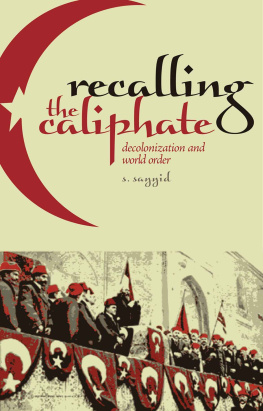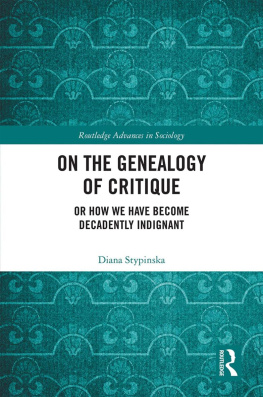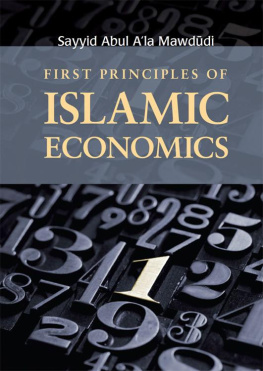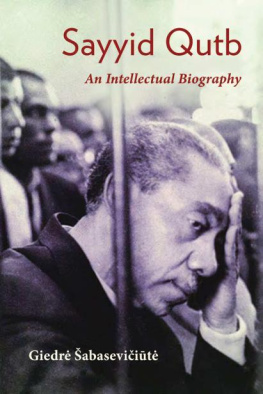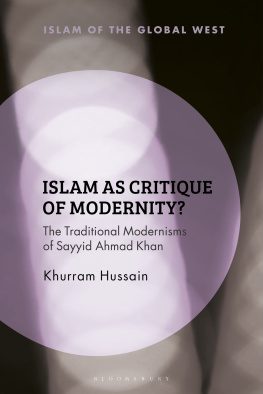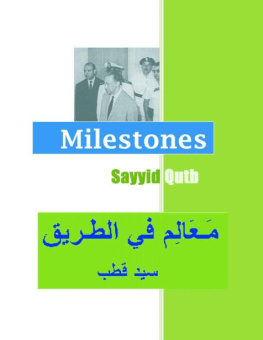S. Sayyid - A Fundamental Fear (Critique Influence Change)
Here you can read online S. Sayyid - A Fundamental Fear (Critique Influence Change) full text of the book (entire story) in english for free. Download pdf and epub, get meaning, cover and reviews about this ebook. year: 2015, publisher: Bloomsbury Publishing, genre: Politics. Description of the work, (preface) as well as reviews are available. Best literature library LitArk.com created for fans of good reading and offers a wide selection of genres:
Romance novel
Science fiction
Adventure
Detective
Science
History
Home and family
Prose
Art
Politics
Computer
Non-fiction
Religion
Business
Children
Humor
Choose a favorite category and find really read worthwhile books. Enjoy immersion in the world of imagination, feel the emotions of the characters or learn something new for yourself, make an fascinating discovery.
A Fundamental Fear (Critique Influence Change): summary, description and annotation
We offer to read an annotation, description, summary or preface (depends on what the author of the book "A Fundamental Fear (Critique Influence Change)" wrote himself). If you haven't found the necessary information about the book — write in the comments, we will try to find it.
A Fundamental Fear (Critique Influence Change) — read online for free the complete book (whole text) full work
Below is the text of the book, divided by pages. System saving the place of the last page read, allows you to conveniently read the book "A Fundamental Fear (Critique Influence Change)" online for free, without having to search again every time where you left off. Put a bookmark, and you can go to the page where you finished reading at any time.
Font size:
Interval:
Bookmark:
critique | critique confronts the world. Without dogma, without new principles, it refuses to conform and instead demands insurrection of thought. It must be ruthless, unafraid of both its results and the powers it may come into conflict with. Critique takes the world, our world, as its object, so that we may develop new ways of making it. influence is a step from critique towards the future, when effects begin to be felt, when the ground becomes unstable, when a movement ignites. These critiques of the state of our world have influenced a generation. They are crucial guides to change. change is when the structures shift. The books in this series take critique as their starting point and as such have influenced both their respective disciplines and thought the world over. This series is born out of our conviction that change lies not in the novelty of the future but in the realization of the thoughts of the past. These texts are not mere interpretations or reflections, but scientific, critical and impassioned analyses of our world. After all, the point is to change it. |
TITLES IN THE CRITIQUE INFLUENCE CHANGE SERIES
Reclaiming Development
An Alternative Policy Manual
by Ha-Joon Chang and Ilene Grabel
Realizing Hope
Life Beyond Capitalism
by Michael Albert
Global Governance and the New Wars
The Merging of Development and Security
by Mark Duffield
Capitalism in the Age of Globalization
The Management of Contemporary Society
by Samir Amin
Ecofeminism
by Maria Mies and Vandana Shiva
Patriarchy and Accumulation on a World Scale
Women in the International Division of Labour
by Maria Mies
Grassroots Post-modernism
Remaking the Soil of Cultures
by Gustavo Esteva and Madhu Suri Prakash
Debating Cultural Hybridity
Multicultural Identities and the Politics of Anti-Racism
edited by Pnina Werbner and Tariq Modood
A Fundamental Fear
Eurocentrism and the Emergence of Islamism
by S. Sayyid
The Lords of Human Kind
European Attitudes to Other Cultures in the Imperial Age
by Victor Kiernan
Male Daughters, Female Husbands
Gender and Sex in an African Society
by Ifi Amadiume
Marxism and the Muslim World
by Maxime Rodinson
Planet Dialectics
Explorations in Environment and Development
by Wolfgang Sachs
Another World is Possible
Popular Alternatives to Globalization at the World Social Forum
Edited by William Fisher and Thomas Ponniah
CRITICAL PRAISE FOR A FUNDAMENTAL FEAR
If you are not only concerned with the future of our planet but also with social justice, you have to read this book.
Gilbert Rist, author of The History of Development
Wise words, crafted with loving care for people and the planet, even more relevant than when they were written a quarter century ago, unfortunately.
Richard Norgaard, University of California, Berkeley
Remains an essential read for anyone involved in the field of development. This book has never been more vital than today.
Jonathan Ensor, Stockholm Environment Institute
Sachs elegantly reminds us that in the search for justice to people and planet we need to begin civilization change by changing the rich, not the poor.
Julian Agyeman, Tufts University
Still remarkably fresh and insightful, Planet Dialectics gives us a much-needed critique of economics gone wrong.
Camilla Toulmin, director of the International Institute for Environment and Development
Amazingly innovative in its perspective, unflinching in its analysis, and radical in its solutions, this book is a historic hallmark.
Tilman Santarius, Germanwatch
A theoretically sophisticated attempt to read contemporary Muslim political identities as a symptom of Eurocentrisms decline
Global Society
A welcome change should be of great interest to those who wish to look at the phenomenon of political Islam and the divination of the clash between the West and the rest from a more sophisticated and theoretical angle a worthy contribution.
Impact International
ABOUT THE AUTHOR
S. Sayyid is a reader in rhetoric at the University of Leeds. He is the founding editor of ReOrient: The Journal of Critical Muslim Studies . His publications include Recalling the Caliphate and the volume (co-edited with AbdoolKarim Vakil) Thinking through Islamophobia .
A
FUNDAMENTAL
FEAR
EUROCENTRISM
AND THE
EMERGENCE OF
ISLAMISM
S. SAYYID
WITH A FOREWORD BY
HAMID DABASHI

A Fundamental Fear: Eurocentrism and the Emergence of Islamism was first published in 1997 by Zed Books Ltd, 7 Cynthia Street, London N1 9JF, UK
This edition was published in 2015
www.zedbooks.co.uk
Copyright S. Sayyid, 1997, 2003, 2015
The right of S. Sayyid to be identified as the author of this work has been asserted by him in accordance with the Copyright,
Designs and Patents Act, 1988
Cover designed by Alice Marwick
All rights reserved. No part of this publication may be reproduced, stored in a retrieval system or transmitted in any form or by any means, electronic, mechanical, photocopying or otherwise, without the prior permission of Zed Books Ltd.
A catalogue record for this book is available from the British Library
ISBN 978-1-78360-191-2 pb
ISBN 978-1-78360-192-9 pdf
ISBN 978-1-78360-193-6 epub
ISBN 978-1-78360-194-3 mobi
To my parents and the power of nine
Contents
Foreword
Hamid Dabashi
Though it was originally published before the iconic events of 9/11, now more than a decade ago, S. Sayyids A Fundamental Fear: Eurocentrism and the Emergence of Islamism (1997) has assumed even more timely significance since its first appearance. In this pioneering book, Sayyid provocatively suggests, and one can still see the logic of his proposition, that we must see political Islamism as a particular phase of decolonization of Muslim political cultures. Sayyid took the rise of Islamism as a challenge to Western political hegemony, and particularly its self-congratulatory declaration of the End of History. That proposition still demands attention.
When exactly was the moment of the rise of political Islamism? The Iranian revolution of 1979; or before it, back in the 1920s when Hassan al-Banna founded the Muslim Brotherhood; or even before then, during the Tobacco Revolt in Iran in 1890, when a clerical fatwa triggered a major anti-colonial movement; or perhaps even earlier than that, when Jamal al-Din al-Afghani commenced a massive pan-Islamist movement in the 1860s; or perhaps in the 1850s, when the Babi movement shook the Qajar foundation to its roots? Or is it after all of these: in the 1980s, when the Taliban appeared in Afghanistan; or the 1990s, when Hezbollah and Hamas entered the political map of the Arab world in earnest; or was it after September 11, 2001 perhaps; or even later when the Muslim Brotherhood completely took over the Egyptian revolution of January 2011? All of these dates and events (and others) can be used to mark a particular phase of Islamism in one direction or another, some of them indeed as marking the decolonization of the Muslim mind, others in fact its opposite. Sayyid was spot on (as the British say) in noting that we had to see political Islamism as an integral part of decolonization. But there is a period of gestation right before that decolonization, which is actually the mark of a deeply colonized Muslim mind that defined its identity in terms decided by its colonizers. This much was known and understood from Albert Memmi to Ashis Nandy.
Next pageFont size:
Interval:
Bookmark:
Similar books «A Fundamental Fear (Critique Influence Change)»
Look at similar books to A Fundamental Fear (Critique Influence Change). We have selected literature similar in name and meaning in the hope of providing readers with more options to find new, interesting, not yet read works.
Discussion, reviews of the book A Fundamental Fear (Critique Influence Change) and just readers' own opinions. Leave your comments, write what you think about the work, its meaning or the main characters. Specify what exactly you liked and what you didn't like, and why you think so.



